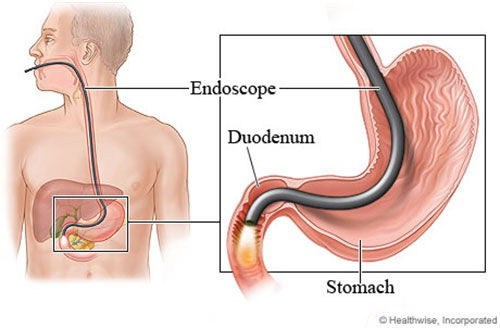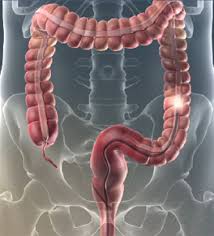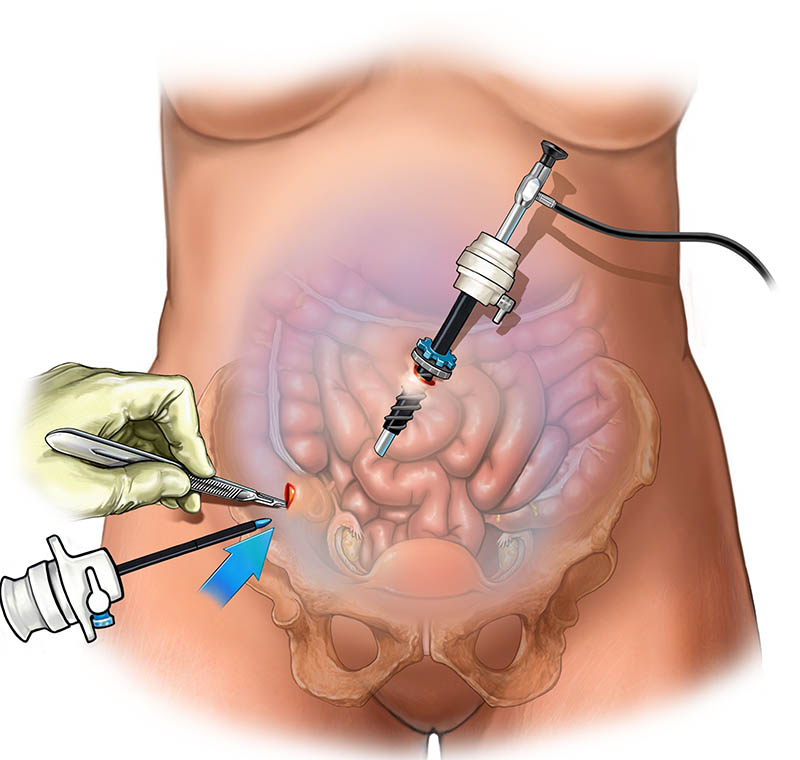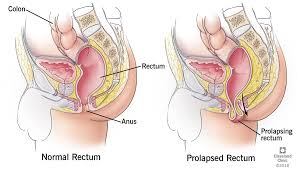
Endoscopy
(Upper GI Endoscopy)
Endoscopy is a procedure where your doctor will use a long flexible tube (endoscope) with light and camera at its end to inspect the inside lining of your esophagus (gullet), stomach and duodenum (first part of small intestine). It is mainly advised as a diagnostic method for a range of conditions although, at time, it may be used to provide treatment as well. Examples of conditions which may warrant an endoscopy are gastritis, reflux (heart burn), hiatus hernia, swallowing problems like food sticking in the chest, etc.
Colonoscopy
Colonoscopy is a procedure done to look for cancer, polyps or other abnormalities inside your bowel
It is done in a hopsital while you are asleep (sedated) using a long flexible instrument called a colonoscope. It has a light source and camera at the end and allows your doctor to view the images in real time on a screen. Your doctor will pass carbon dioxide into the colon to inflate it to allow visual inspection.As the colon contains fecal matter, it does require some preparation to allow cleaning and adequate examination. This is called "bowel preparation". Ask your doctor for the exact details and instructions as the "preparation" needs to be suited to your specific circumstances. It is important to follow the instructions that you are given so that the cleanout is adequate and you do not have to repeat the test. If you have any concerns or questions about the "bowel preparation" process, please talk to your doctor about these.

Laparoscopic Surgery
Also called keyhole surgery
Laparoscopic surgery is keyhole surgery where smaller cuts are made to pass camera and instruments inside the abdomen to inspect and operate on the organs inside the abdominal (belly) and pelvic area. It has advantages over traditional surgery, including more rapid recovery, reduced pain and much smaller scars. After laparoscopic surgery, often (but not always) you may not need to stay in hospital overnight.Keyhole surgery is a type of surgery in which the surgeon uses only small cuts to get through the skin. It requires special training. People who have keyhole surgery usually recover quite quickly. During laparoscopy a small cut is made in the abdomen. A thin tube containing a light and camera, known as a laparoscope, is then inserted to look inside the abdomen and pelvis. Gas is used to inflate the belly so the surgeon can see the organs properly.
One or more other small cuts may be made for other small instruments if needed.

Pelvic Floor
The pelvic floor is a group of muscles and ligaments that support the bladder, uterus (womb) and bowel.
The openings from these organs, the urethra from the bladder, the vagina from the uterus and the anus from the bowel pass through the pelvic floor. The pelvic floor muscles attach to your pubic bone at the front and the tail bone at the back and from the base of your pelvis.When the pelvic floor is strong, it supports the pelvic organs to prevent problems such as: Incontinence (the involuntary loss of urine or faeces) Prolapse (lack of support) of the bladder, uterus and bowel. The pelvic floor muscles also help you to control bladder and bowel function, such as allowing you to 'hold on' until an appropriate time and place.

General Abdominal
We offer surgical services for a wide range of conditions.
Services offered include (not limited to) both Laparoscopic (keyhole) & Open surgeries for
News Update / Announcements
COVID 19 pandemic has affected us all in some way. We strive to provide you with a safe environment for your appointment.
If you are unwell with respiratory symptoms or fever, have been in contact with someone diagnosed or suspected to have COVID, please DO NOT attend your appointmentPlease seek medical care from your GP or hospital as required and advise us on phone. We can offer you telehealth appointments (on phone) or can reschedule your appointment to a later date.
When attending the clinic, please maintain physical distancing. We have hand sanitizers in the waiting area for your convenience and encourage you to utilize these. Face masks are mandatory when in the clinic unless you have a medical exemption.
